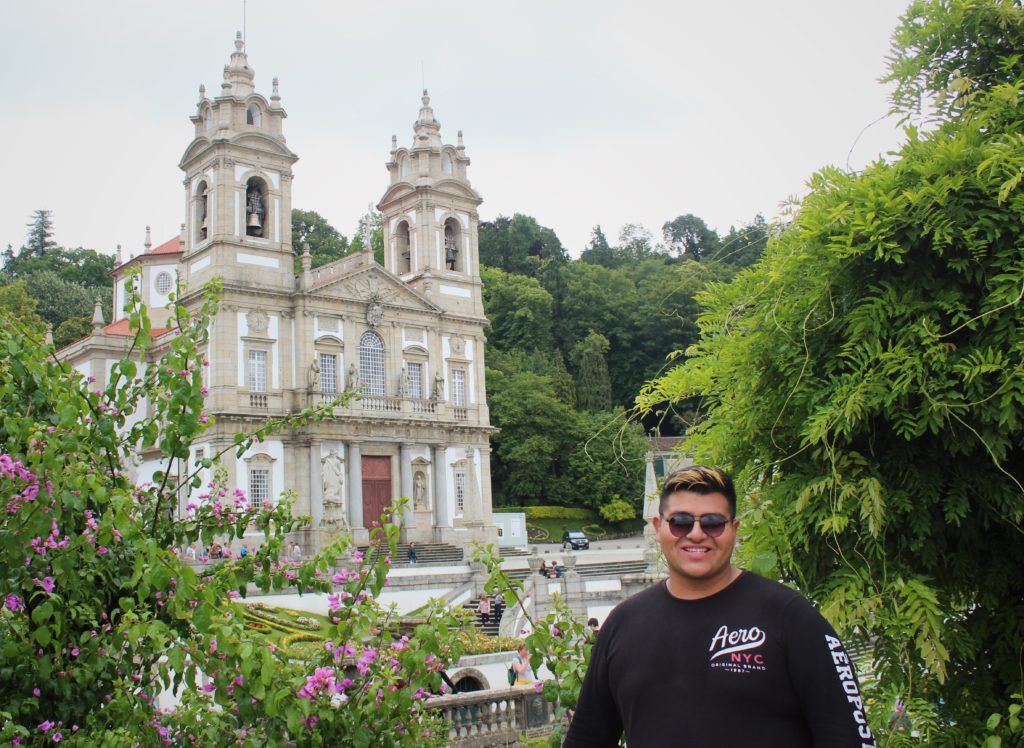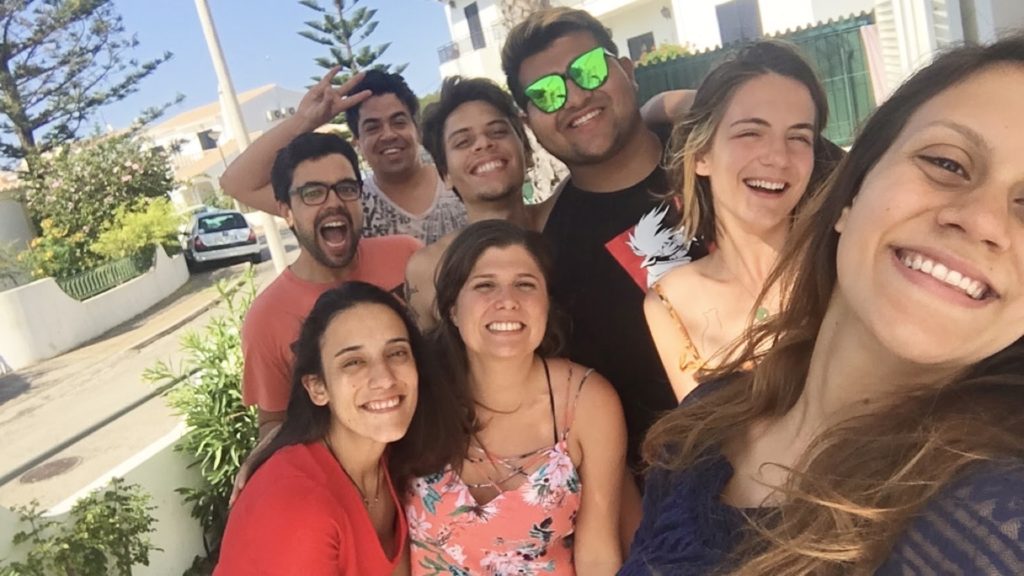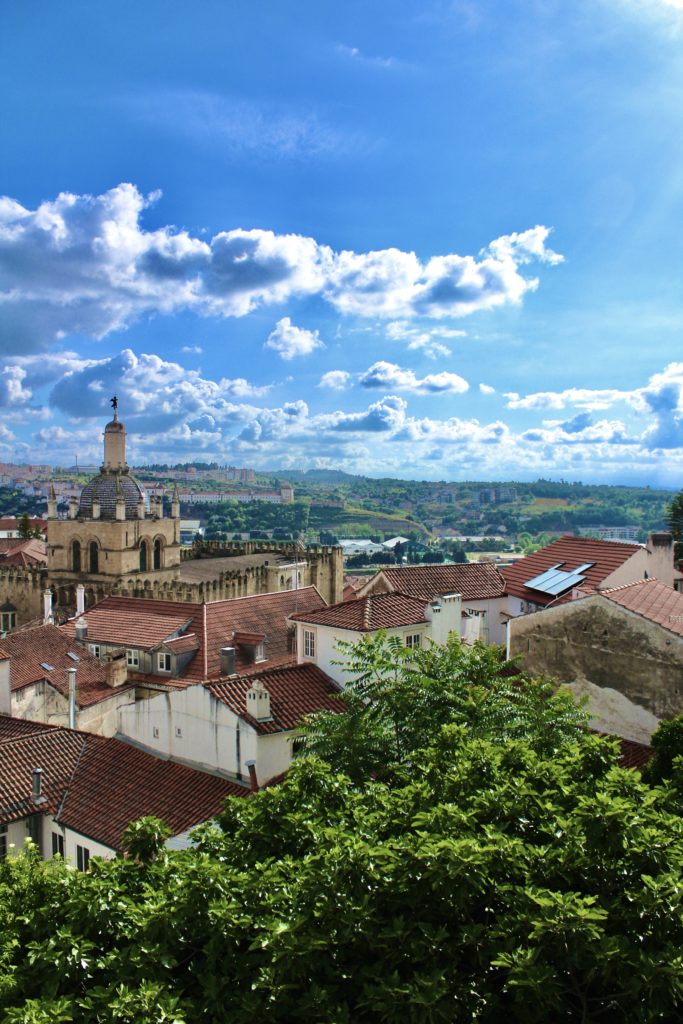Hello everyone! My name is Steve Anthony Maravillo and I am a 2021-2022 Gilman Alumni Ambassador currently established in The Fabulous Las Vegas, Nevada. The Gilman Scholarship was an integral part of my completion of my year-long exchange at the University of Granada, Spain in the 2018-2019 academic year. This past summer, I graduated from the University of California, San Diego and am now a graduate student at the University of Nevada, Las Vegas.
As I reflect upon the past few years of my young adulthood, there isn’t an experience that can be compared to the last month of my year abroad spent solo-traveling across all major ends of the beautiful, oceanside country of Portugal. I was born and raised in Southern California in a relatively secluded neighborhood in the city of San Bernardino, California. In my coming of age, foreign languages sparked my interest from the moment I began improving my Spanish throughout the secondary school years of my adolescence. Beyond the language itself, I found myself most interested in the variety of cultures associated with the Spanish language, particularly in the European continent via Spain. While this certainly set the foundation for my eventual year abroad to Spain, the gradual interest that I developed for appreciating both language and culture had a major impact on the way in which I perceived fluency when learning languages. Fluency became more than simply recalling corrected vocabulary words or spelling, rather it was more focused on the relationships and connections built through the language, in addition to the exploration of culture in-depth.
Upon completing the academic portion of my year abroad in Granada, Spain, I upheld the journey of traveling from the most Northern city in Portugal to the most Southern tip of Portugal for nearly five weeks before returning to California in the Summer of 2019. With no intent to become fluent in Portuguese, this summer experience in Portugal had the greatest impact on my ability to build numerous relationships across the country, in which 80% of them were exclusively established in Portuguese. I began this incredible journey in the Northern Portuguese city of Braga, where I stayed for a few days and had the most intense culture shock, in which I learned that nearly no one in this city was fluent in neither English nor Spanish; therefore, the initial struggle to communicate quickly set the foundation for what was to come and the efforts I needed to make in order to enjoy myself in the final month of my exchange year.

The most interesting part of the young adult lifestyle in Portugal is that everyone’s relatively warm, but in the most relaxing way you can depict. In other words, young people in Portugal aren’t outrageously loud or enthusiastic about everything or amicably exclusive, rather they’re more mellowed down yet relatively inviting, which was an evident difference from where I spent the majority of my year abroad. Nonetheless, building relationships with the Northern Portuguese was nearly effortless and I found myself becoming jam-packed with plans after day three in the North. As most language learners may understand, the first few words and phrases that my newly-established friends had ensured I learned mostly consisted of the usual bits of profanity. As humorous as that may be, I believe it’s always important to learn such words to ensure that you’re aware of anyone particularly using those words when referring to you; however, I never had an issue with that throughout my Portuguese journey. The language learning process developed tremendously when meeting elderly people, which were primarily elder relatives of the friends I was connecting with. In my personal experience, connecting with elders always authenticates a relationship, particularly given the difference in wisdom, experience and intellect, in some cases. Therefore, learning to communicate with elders served as a major source of improvement in my spoken communication in Portuguese, particularly because the North of Portugal is relatively infamous for having an accent that is particularly intelligible to beginning Portuguese speakers and southern Portuguese natives.

Fast forward to nearly two-and-a-half years from this summer in Portugal, I’m appalled at how much I was able to retain my Portuguese language skills and improve thereafter upon returning to California. The most intriguing aspect of my post-Portugal lifestyle is the community I’ve built among Portuguese speakers in San Diego. Beyond community building, the experience of having naturally learned a language with zero hours spent in the classroom has increased my confidence and self-esteem tremendously given that my comfort in approaching new people was thoroughly enhanced through that summer in Portugal. My advice for Gilman Scholars returning to the U.S. after learning an additional language overseas is to build community with speakers of that language in your home community, to the best ability that one can achieve. The reverse culture shock of returning to the U.S. after an international experience is heavy; however, building relationships with people that can correlate to the experience of studying abroad will ultimately result in a healthy retention of the language skills learned overseas.




